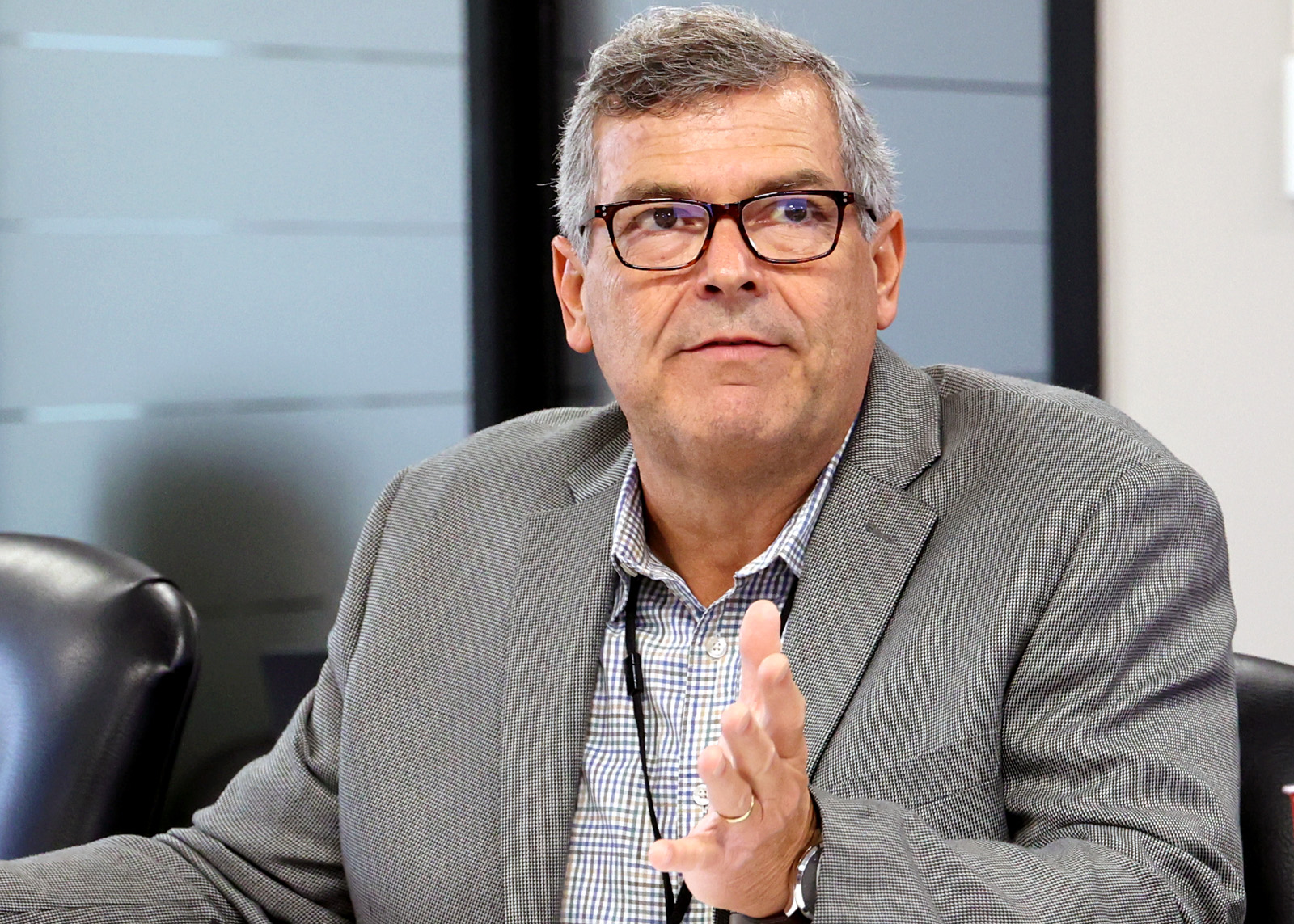IN DEPTH
Half of the 10 Springfield marijuana dispensaries haven't properly reported the additional 3% city sales tax on cannabis that went into effect at the start of 2024.
In March, five Springfield dispensaries did not report the 3% sales tax, David Holtmann, director of finance at the City of Springfield, said at a City Council lunch May 7 during a presentation on the 2025 city government budget. In January, three dispensaries did not report the 3% sales tax. There were four that didn't report in February.
There are 10 licensed cannabis dispensaries in Springfield that should be reporting the additional 3% sales tax, Holtmann said. The city's finance director declined to disclose individual dispensaries that were not reporting taxes properly, saying that was “proprietary information.”
Even though the dispensaries' failure to report is impacting the city's budget, albeit minimally, the city government does not have the power to enforce the sales tax, Holtmann said. That task is the responsibility of Missouri Department of Revenue (DOR). The Springfield Finance Department has worked closely with a DOR representative regarding the sales tax disparities.
“All reporting and compliance is Department of Revenue's responsibility,” Holtmann said. “We do have five vendors currently that have not reported on the 3% city sales tax and Department of Revenue have said, again, that they will be contacting and making sure they get that situation figured out.”

Springfield voters approved the 3% sales tax on Aug. 8, 2023. The tax went into effect on Jan. 1, 2024, and is to be paid in addition to the state of Missouri's 6% tax on recreational marijuana sales and the total base sales tax rate of 8.1%.
Through the end of March, the City of Springfield has collected about $317,000 in marijuana tax revenues, Holtmann said. The Finance Department projected a total collection of just over $1 million through June, and estimates Springfield will take in $1.8 million in recreational marijuana sales tax revenues for the 2024-25 fiscal year, which begins July 1.
“There's a little bit of catching up we have to do for some of the reporting issues, and then, perhaps, some of the compliance issues that the Department of Revenue will be able to work through,” Holtmann said.
It's not just the new 3% sales tax being underreported

On top of the additional 3% sales tax on cannabis products that went into effect at the start of 2024, a number of dispensaries across the city haven't accurately reported the city's portion of the 8.1% base tax rate, Holtmann said.
The city receives 2.125% of that base rate, made up of various taxes, including a 1% sales tax, Holtmann said. In January, one dispensary did not report the 1% tax. That number increased to two dispensaries in February and four in March.
“Whether it would be medical marijuana, or recreational marijuana, they would pay that 8.1% on that purchase regardless of what it is,” Holtmann said in an interview with the Hauxeda following his presentation. “Then on recreational, then the city imposes the additional 3% on the sale of that. Once medical marijuana was legal in Missouri, we started receiving our normal sales taxes on that sale.”
Dispensaries confused on reporting the sales tax

Across Missouri, marijuana dispensary operators are confused on how to report an additional local sales tax, as many have expressed confusion to the Missouri Department of Revenue, Holtmann said. Under Missouri law, the dispensary must report the additional local sales tax separately from other city, county or state taxes.
This means it is likely a reporting issue for most of the dispensaries in Springfield, and the underreporting was likely a mistake that will be resolved later, Holtmann said.
“One of the things that we’ve discovered from Department of Revenue is that some of the vendors are unfamiliar with the reporting for the 3%” tax, Holtmann said. “So several of them had been reporting all of their sales under 1% as opposed to breaking out the additional 3% that the city collects.”
Some dispensaries have changed business names and DOR records do not reflect the change, Holtmann said. In Springfield, at least two dispensaries have changed business names recently.
“One local vendor had changed their registered name and department of revenue, they did not have that updated,” Holtmann said. “So, they’re in the process of going out, trying to contact[...] the business under the new name, and determine what is going on with their reporting.”
At the end of 2023, C3 Industries, a marijuana company based in Michigan with a multi-state footprint, acquired the three Missouri dispensaries previously operated as the Farmer's Wife, according to a company press release.
In March 2024, C3 Industries completed the rebranding of the former Farmer's Wife dispensaries in Springfield, West Plains and Mountain Grove, under the new business name High Profile. Management of the Springfield High Profile, located at 2935 E. Chestnut Expressway, did not immediately respond to a request for comment for this story.
In January 2024, Elevate Cannabis purchased Bloom Medicinals dispensary, located at 751 S. Glenstone Ave. At the end of April, the signs on the dispensary officially changed to Elevate, store manager Anthony Massey said. Elevate did not immediately respond to a request for comment.
Bulk of anticipated revenues sitting in city government reserve accounts

As marijuana tax revenues roll in for the Springfield city government, it remains to be seen how exactly the money will be spent within the four voter-approved uses: public safety, mental health services, housing and substance abuse services.
While city council members have agreed to a few programs that fit the bill, the bulk of projected revenues have yet to be allocated.
The City Council unanimously approved a $90,800 appropriation on May 6 to re-establish the jail diversion program, a partnership between the Springfield-Greene County Health Department and Springfield Municipal Court, with existing recreational marijuana tax revenues. The program is also slated for $363,200 in the 2024-25 city budget, which is currently being deliberated by the City Council.
In addition, council members have agreed to provide $150,000 in funding for a virtual real time crime center and $94,050 for gun violence prevention strategies.
“That will leave just under $1.2 million sitting in reserve appropriation in the proposed budget,” Holtmann said at the City Council’s April 30 study session.
Virtual real time crime center

The virtual real time crime center would require $150,000 on an annual basis, Springfield Police Chief Paul Williams said at the budget presentation. That amount would fully fund the center, which is proposed to be financed through the marijuana sales tax fund.
Williams came up with the idea of the virtual center about three years ago, he said. Previously, he had wanted a stand-alone, physical facility complete with staff and equipment. In other cities where large law enforcement agencies have physical real time crime centers, those facilities cost about $3 million to $5 million to operate each year.
“I've been waiting 10 years to get one of those” facilities, Williams said. “I figured it was time we change direction and try to do something new.”
By taking it virtual, the cost reduction for the crime center is drastic. Williams said purchasing the building and hiring the personnel was the steepest factor of the cost. He said the virtual center would aid the Springfield Police Department in “moving to the future.”
“I really think it's the way to the future,” Williams said. “Put information in the hands of the officers on a regular basis.”
Funding discussion heads to committee

At the April 30 meeting, Councilmember Brandon Jenson championed some funding requests of the Community Partnership of the Ozarks totaling just over $1 million, including a landlord risk mitigation fund, homeless supportive services and ongoing funding for CPO’s planned “purpose-driven day center,” a day shelter for the unsheltered population.
To provide some predictability for unpredictable revenues, Councilmember Monica Horton suggested dividing the funding equally across the four categories, and emphasized the need to stretch and leverage the tax revenues with federal funding for projects and programs that have already been vetted.
“I just feel like feel like that creates just some stability in terms of what we can expect to apply whatever the revenue amount is, whether it's $186,000, or whether it's $1.8 million, you will know that each of the four categories, you end up having something and at the same time,” Horton said.
Councilmember Matthew Simpson disagreed with allocating revenues into “what can sometimes be arbitrary percentages,” and argued that some projects, like the jail diversion program, “transcend categories.”
“Rather than kind of setting hard lines between categories, why not look at the proposals that we have and determine what are the ones that are gonna have the biggest impact across the board,” Simpson said.
After continued back and forth between council members, Mayor Ken McClure suggested they refer further discussion of the marijuana sales tax to the City Councils’ Finance and Administration Committee.
“We’ve got roughly $1.8-2 million, we’ve got a proposal from CPO that would essentially take all of that, we're talking about an even allocation — I don't know that we have enough information today to make a decision,” McClure said at the April 30 meeting.
The City Council formally referred the matter to committee on May 6.

